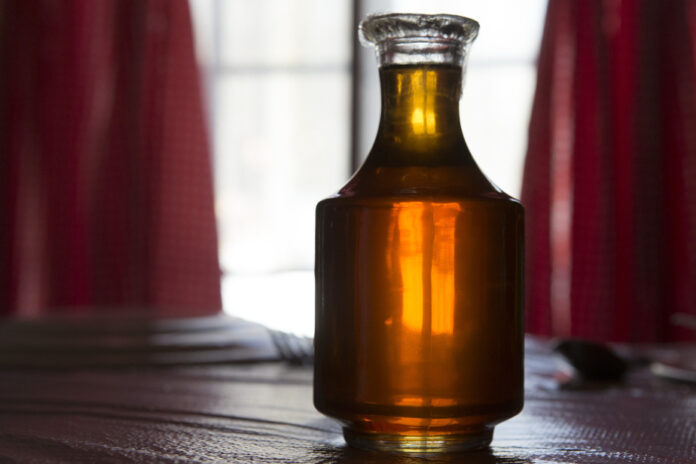With the rise in food prices, consumers are making choices at the grocery store and sometimes leaving maple syrup, the supreme emblem of our food heritage, on the shelf. Syrup sales, particularly overseas, are declining, and some consumers are reportedly turning to cheaper, artificial alternatives.
“It’s very difficult right now. Export sales are down 15% in volume,” confirms Jean-Marc Lavoie, general director of the Maple Industry Council.
“And we do a lot of our business outside the Quebec market,” he continues.
When we think of maple syrup, we often think of the traditional can, bought at the cabin or from a relative. However, the syrup industry in Quebec involves processing and export: Quebec syrup is exported to 72 countries, mainly to the United States which swallows 64% of this syrup.
Food inflation is hitting the planet and explains the decline in exports. Especially since foreign markets do not have as strong a link with maple syrup, explains Jean-Marc Lavoie.
And supermarket shelves, here as elsewhere, are not elastic, he adds. If maple syrup sells less, merchants will replace it with a cheaper substitute.
“We must not give up the fight,” admits Jean-Marc Lavoie, who notes, with regret, that sales of table syrup – which is often called pole syrup – are in “less sharp decline” than syrup maple, exclusively for budgetary reasons.
Substitution is seen at the grocery store, but also among food processors who must also reduce their production costs.
After two impressive jumps in exports in 2020 (20%) and 2021 (21%), there was a slight decline last year which should be accentuated this year, explains the grouping of the Quebec Maple Syrup Producers, which notes a 12.4% decline in exports from July 2022 to July 2023.
To maintain their market, some producers are offering new, smaller formats.
Producers and processors also rely on promotion to remind consumers, both in Quebec and outside, that there is no substitute for their maple syrup.
In maple syrup production, the years follow one another and are not the same. If last year had been a good year for syrup, Quebec maples were less generous in 2023, with a very small harvest: 124 million pounds of syrup – there had been 211 million the previous year.
Maple lovers can be reassured, there will be no shortage on the shelves, because manufacturers had made reserves.
In Quebec, the syrup trade is governed by agreements between the producers’ association and industrial buyers.
People cooked more than usual and their cooking budget was larger. Producers estimate that there was then a 20% increase.
Strong demand continued until last year when cooks found themselves with less time and less money.
After this very average year of 2023 in terms of yield, maple producers will have the right to add 7 million additional taps in Quebec’s maple groves. There will be a total of 60 million taps by spring 2026.
The aim of this hoped-for increase in production is to replenish the syrup reserve, which is at its lowest.
Quebec has a “strategic” reserve of syrup which makes it possible to cover bad seasons and ensure a regular supply.
These three huge warehouses located in the heart of maple country – in Laurierville, Plessisville and Saint-Antoine-de-Tilly – can hold 133 million liters of syrup, but there are only 15 million currently.
“To these are added the buyers’ stocks which are around 60 million. There will therefore be no shortage of maple syrup despite the small harvest in 2023,” explains Joël Vaudeville in an email.
Good news for the Holidays, a very important time for syrup. Christmas markets offer real maple syrup, recalls Jean-Marc Lavoie, and people also serve it with their brunches.





